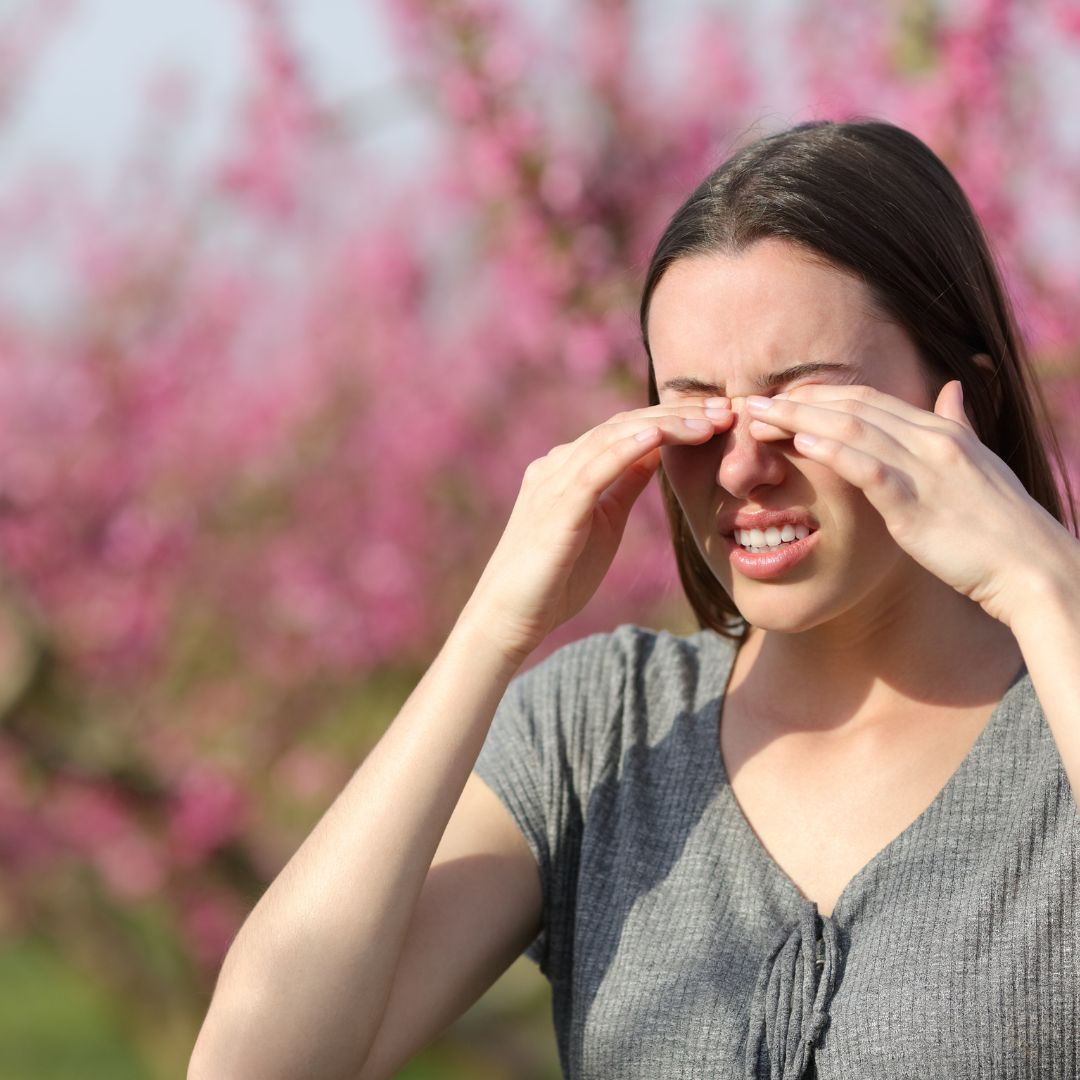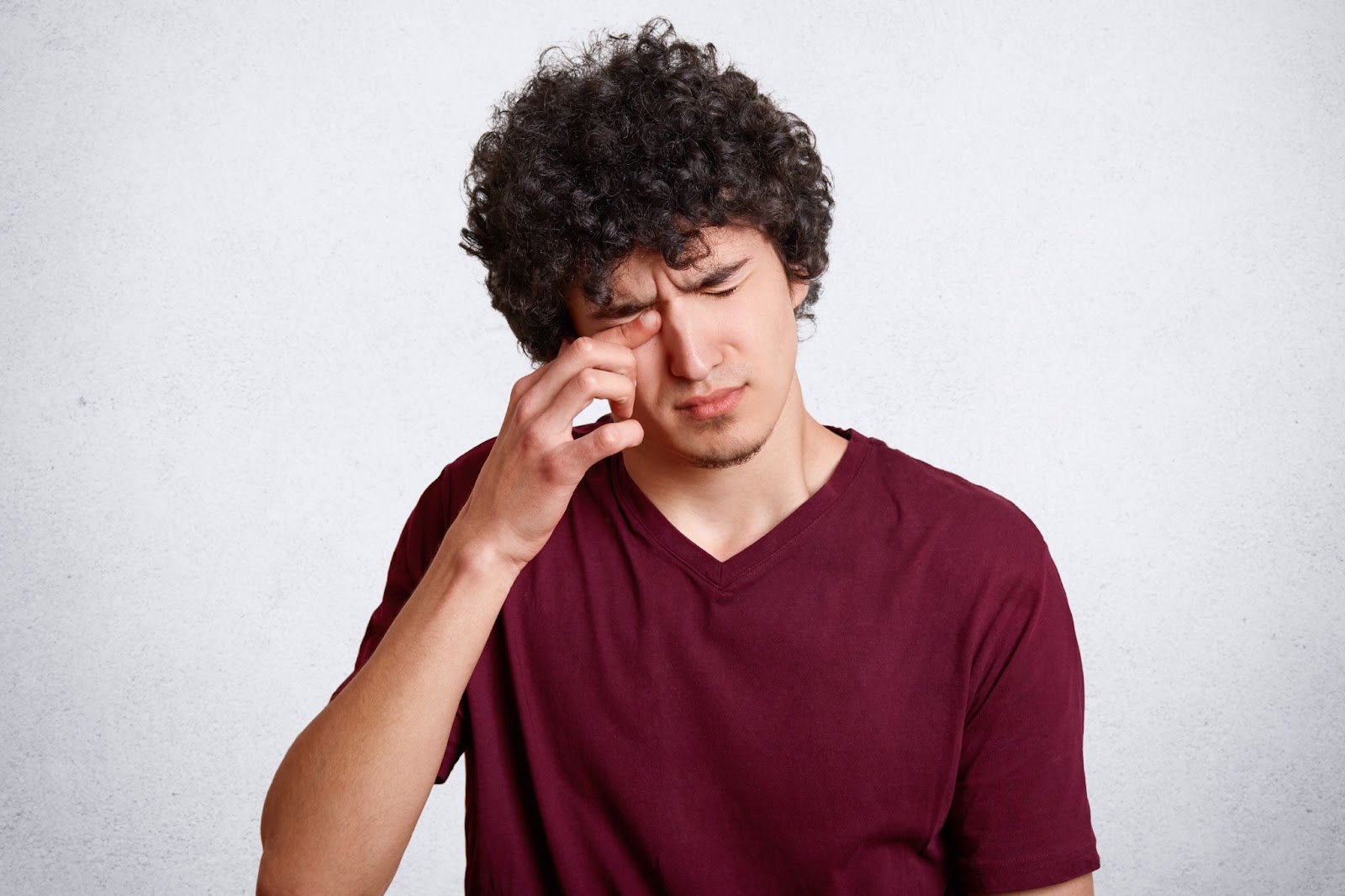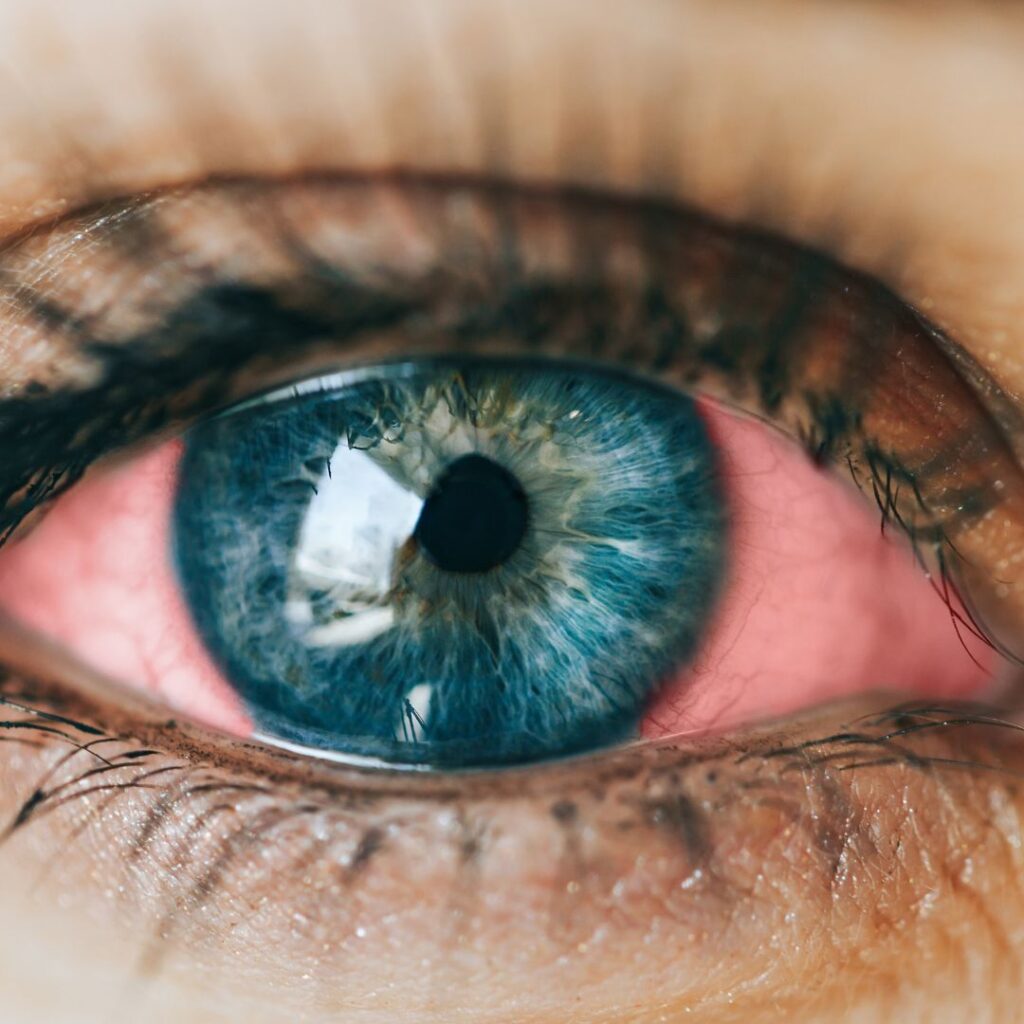Spring is a welcome sight after months of cold, grey skies. But for allergy sufferers, it’s also the start of relentless sneezing, congestion, and, worst of all—itchy, watery eyes. If you’re one of the many people in Ontario who dread this time of year because of eye allergies, you’re not alone.
Let’s talk about why your eyes go into overdrive every spring, what’s causing all that irritation, and, most importantly, what you can do to keep them clear and comfortable.
Why Do Spring Allergies Hit So Hard?

Spring allergies, also known as seasonal allergic conjunctivitis, happen when your immune system reacts to allergens in the air—most commonly pollen. Trees, grass, and flowers release tiny particles into the atmosphere as they bloom, and those particles can trigger allergic reactions in people who are sensitive to them.
Ontario sees a major spike in pollen levels from March through June, which means anyone prone to allergies is at risk of experiencing symptoms during this time. While runny noses and sneezing get a lot of attention, the impact on your eyes can be just as frustrating—sometimes even worse.
What Causes Itchy, Watery Eyes During Allergy Season?
Your eyes are sensitive by nature. They’re designed to detect and react to foreign substances to keep them safe. When allergens like pollen, dust, or mold spores come into contact with your eyes, your body sees them as a threat and releases histamines—chemicals that trigger inflammation and irritation.
That’s when the misery begins.
Common Triggers for Eye Allergies
- Tree pollen: Birch, oak, maple, and cedar are notorious for high pollen counts in the spring.
- Grass pollen: Becomes a bigger issue in late spring and early summer.
- Mold spores: Thrive in damp environments and can be stirred up in windy or rainy conditions.
- Pet dander: While not seasonal, pet allergies can get worse in the spring as animals shed their winter coats.
How Allergies Affect Your Eyes

The symptoms of eye allergies can range from mildly irritating to downright unbearable. You might experience:
- Itchiness: That overwhelming urge to rub your eyes makes things worse.
- Watery eyes: Your body tries to flush out allergens with excess tears.
- Redness: Inflamed blood vessels give your eyes that telltale irritated look.
- Swelling: Puffy, swollen eyelids can make your eyes feel heavy.
- Blurred vision: Excess tearing and irritation can make it harder to see clearly.
Ways to Prevent and Relieve Itchy, Watery Eyes
1. Stay Ahead of Pollen Counts
Check the pollen forecast before heading out. Websites and apps provide daily updates so you can plan accordingly. On high-pollen days, try to:
- Keep windows closed at home and in the car.
- Use an air purifier to reduce indoor allergens.
- Avoid outdoor activities during peak pollen hours (early morning and late afternoon).
2. Wear Protective Eyewear
Sunglasses aren’t just for UV protection—they also act as a shield against airborne allergens. If you wear contacts, consider switching to glasses during allergy season to reduce exposure.
3. Wash Your Face and Hands Often
Pollen sticks to your skin, hair, and clothes. Washing your face and hands frequently helps remove allergens before they reach your eyes. It’s also a good idea to shower and change clothes after spending time outdoors.
4. Use Artificial Tears
Lubricating eye drops can help rinse out allergens and soothe irritation. Look for preservative-free options for the best results.
5. Apply a Cold Compress
A cool, damp washcloth over your eyes can reduce inflammation and relieve itching. Keep one in the fridge for quick relief after a long day.
6. Try Allergy Medications
Over-the-counter antihistamines or allergy eye drops can help control symptoms. If your allergies are severe, an optometrist can recommend prescription options tailored to your needs.
7. Keep Indoor Air Clean
Use a HEPA filter in your home to trap allergens. Regularly cleaning surfaces, vacuuming with a HEPA-filtered vacuum, and keeping pets out of the bedroom can also help.
When to See an Optometrist
If your symptoms don’t improve or get worse despite trying these strategies, it might be time for a professional opinion. At LMC Optometry & Eye Care, we help patients manage allergy-related eye issues so they can get through spring comfortably. Chronic eye irritation can sometimes be confused with other conditions, so an eye exam can ensure you’re treating the right problem.
Enjoy Spring Without the Eye Irritation
Spring in Ontario is beautiful, and there’s no reason to let itchy, watery eyes spoil your season. By staying ahead of pollen, using protective eyewear, and keeping your indoor environment allergen-free, you can make this allergy season your most comfortable yet. If your symptoms persist or you just want to make sure you’re doing everything right, come see us at LMC Optometry & Eye Care. Our team is here to help you find relief, so you can get back to enjoying everything spring has to offer—without the irritation.



